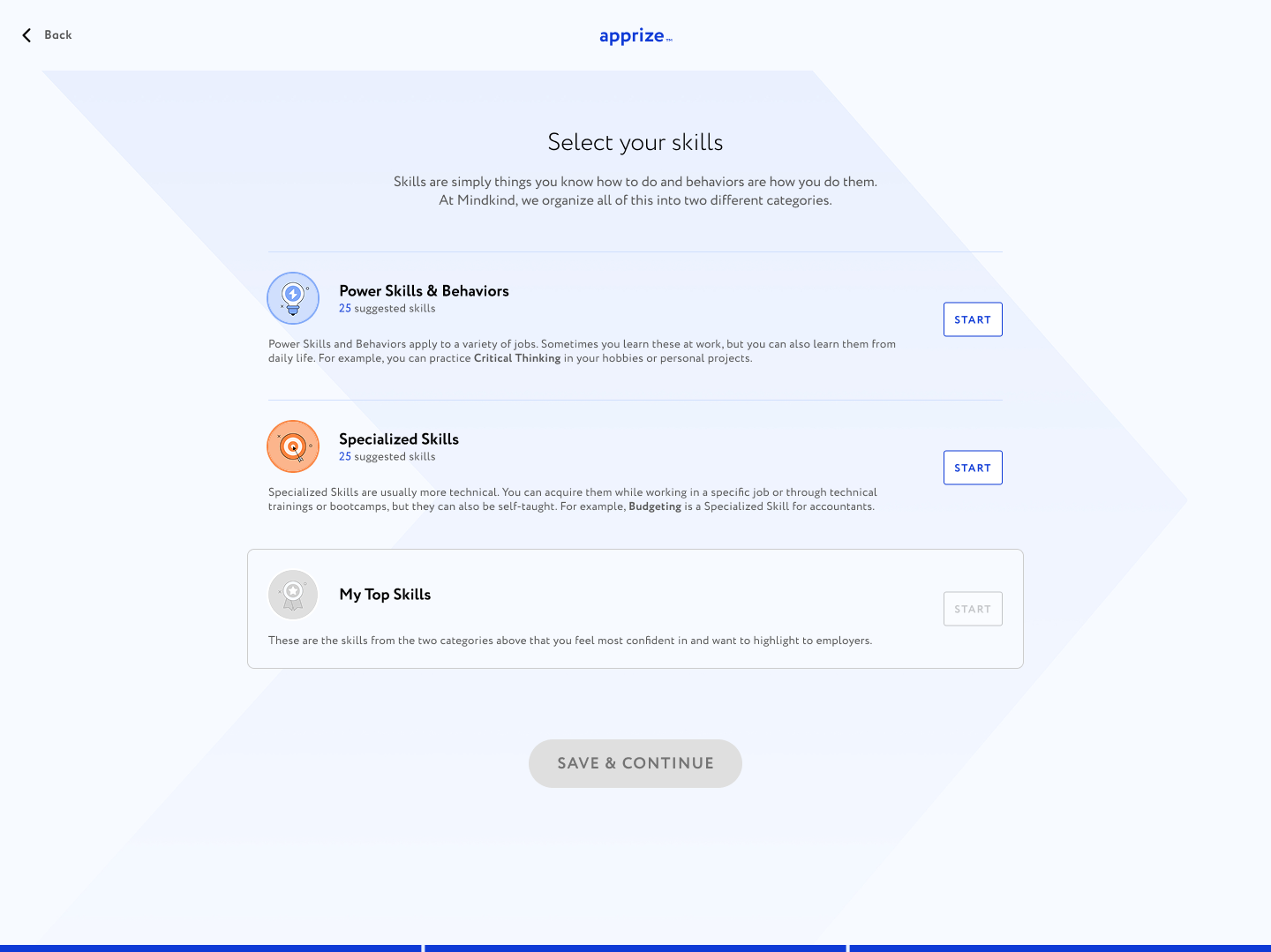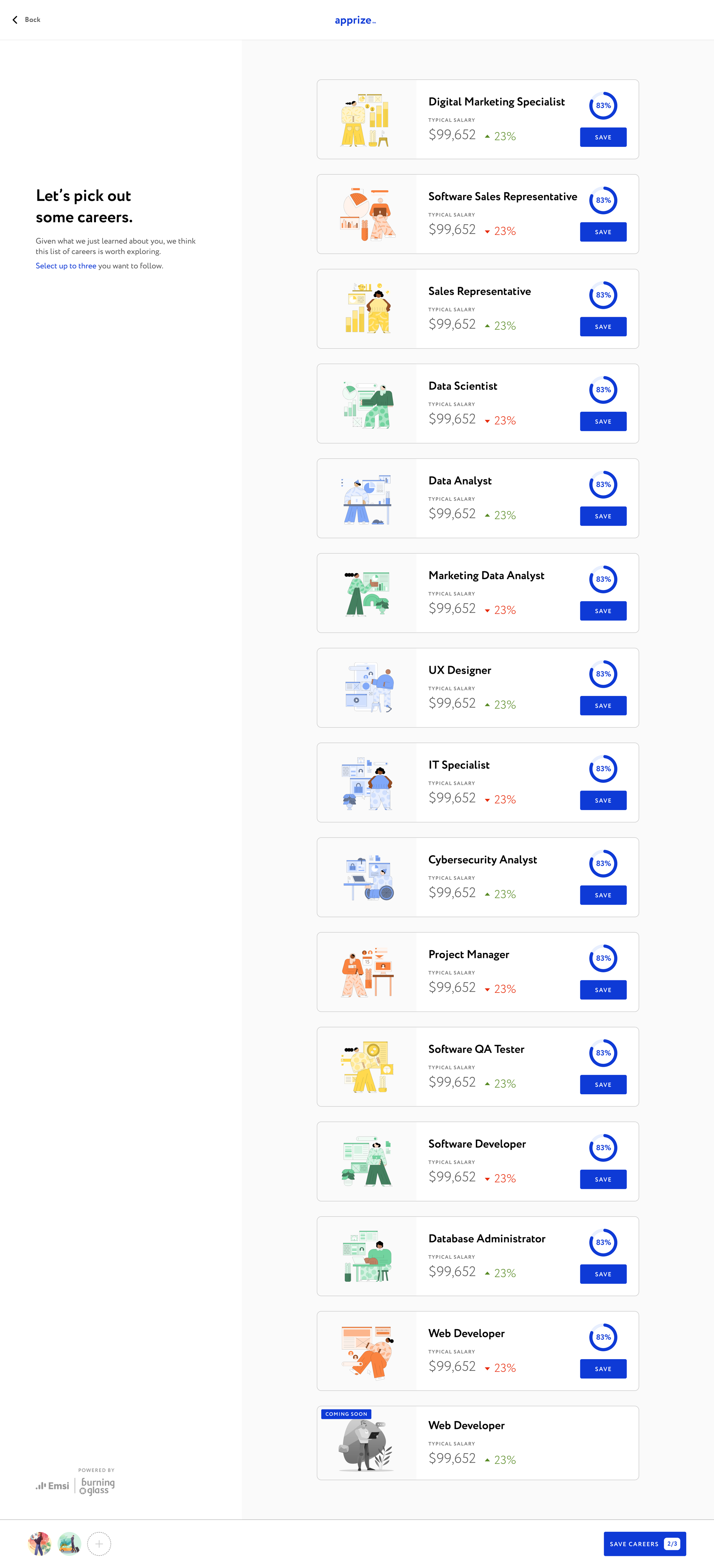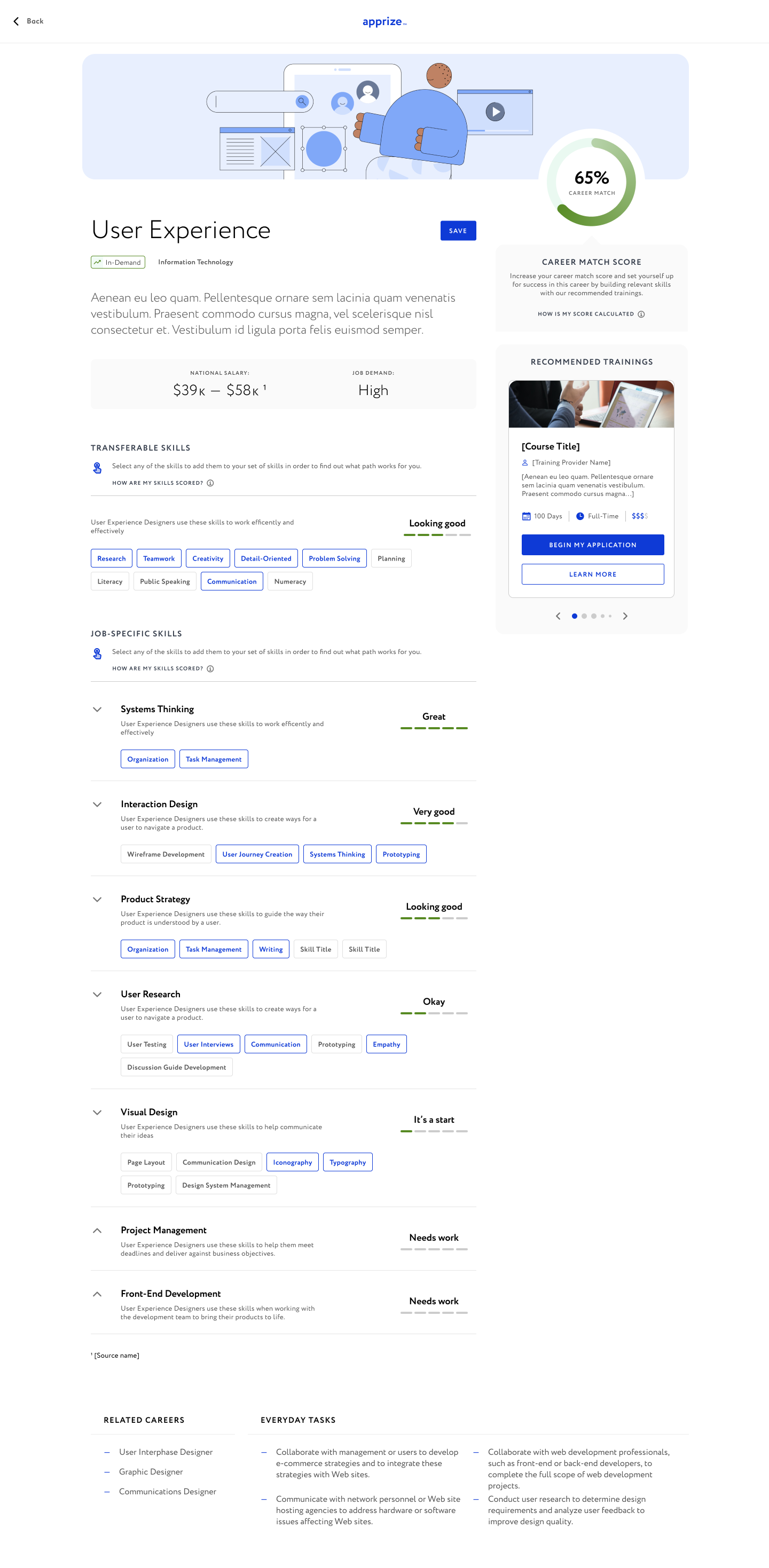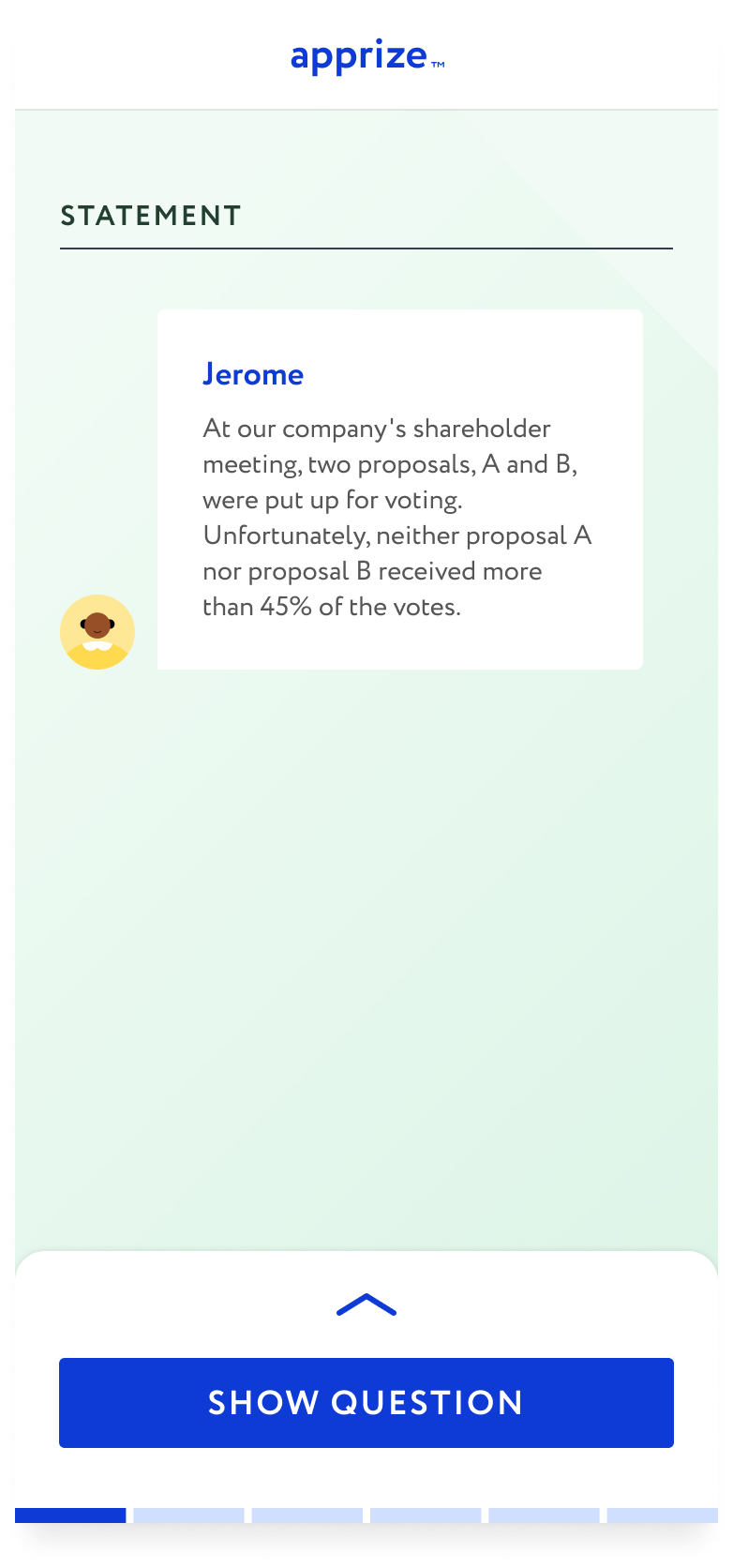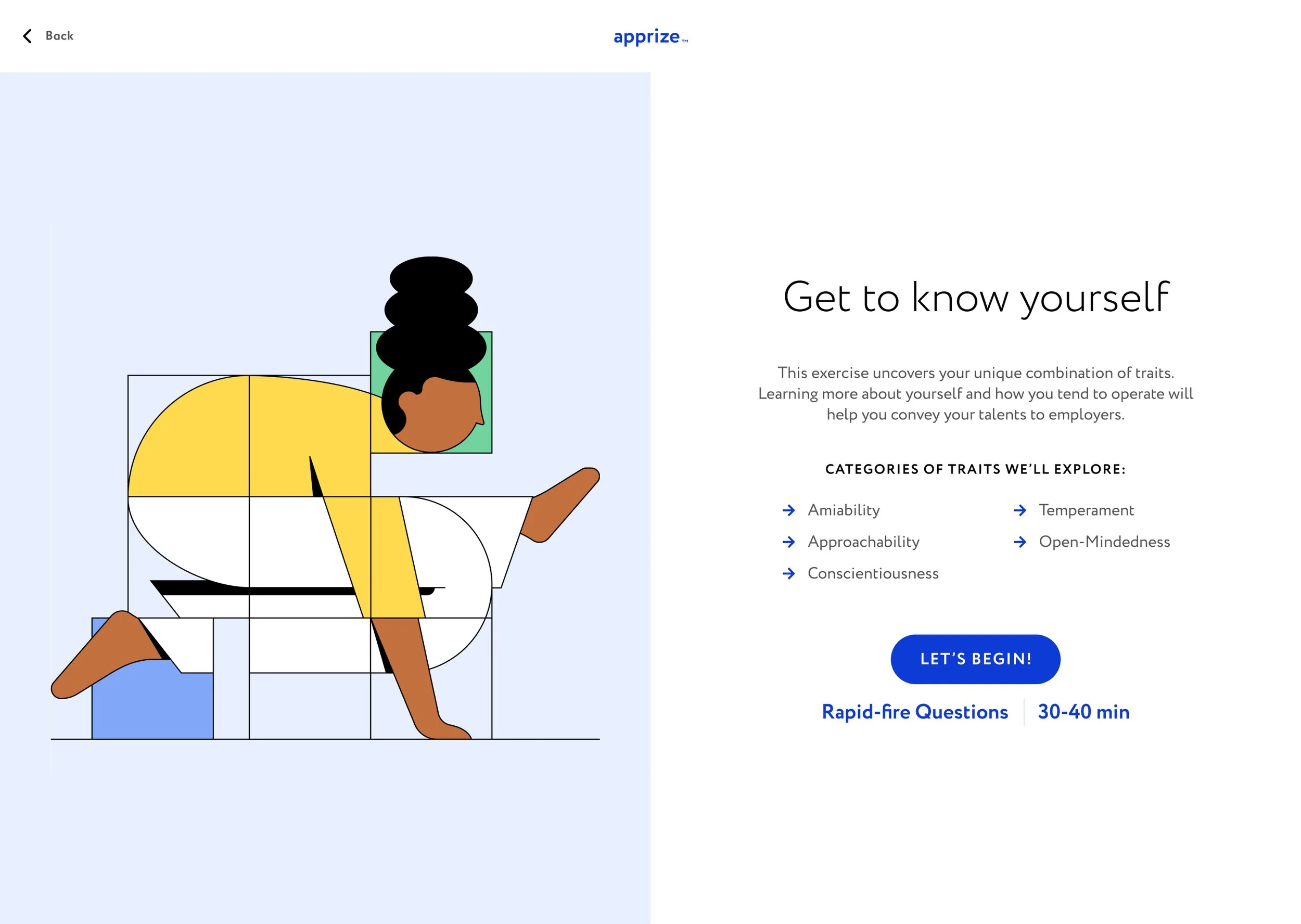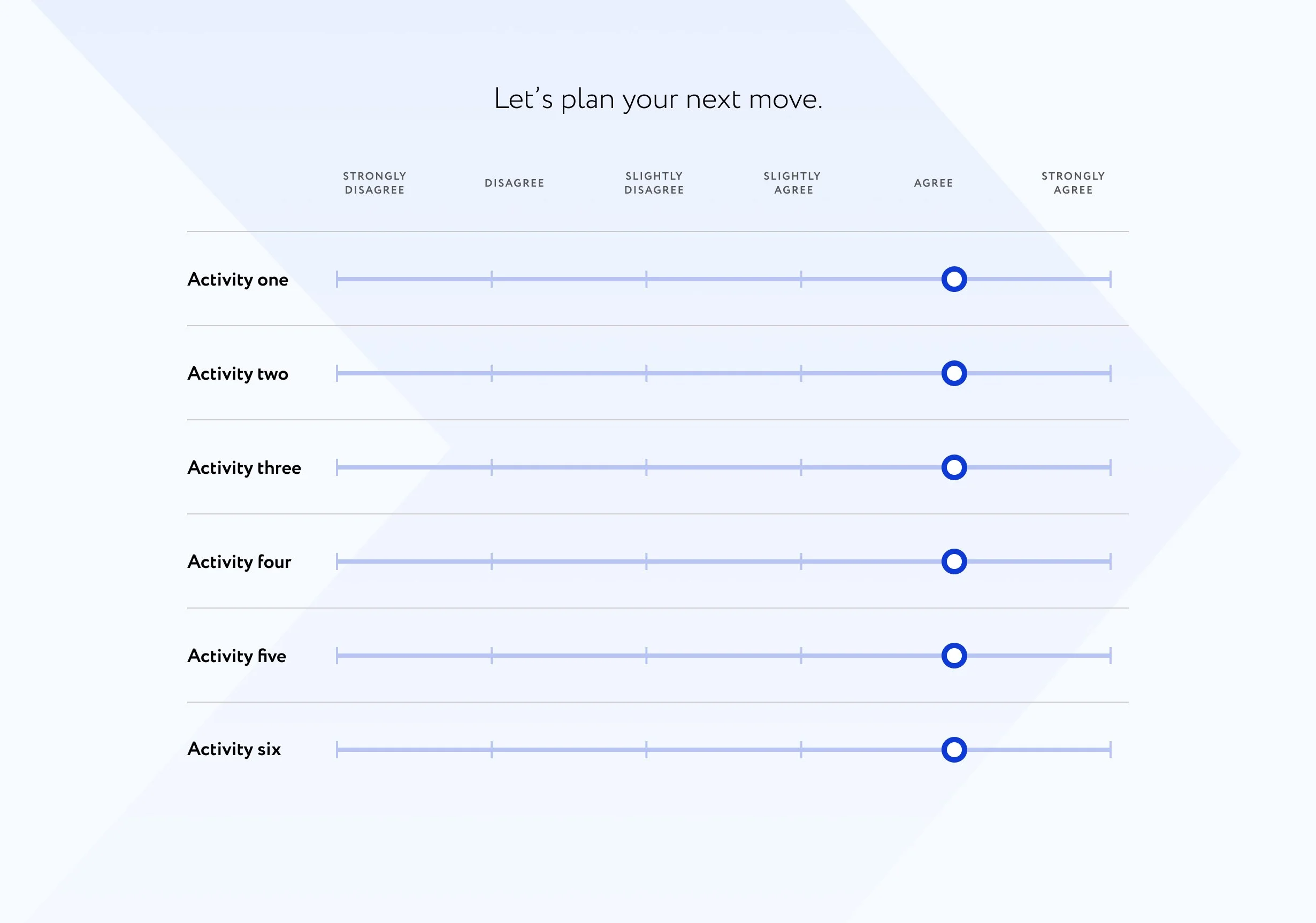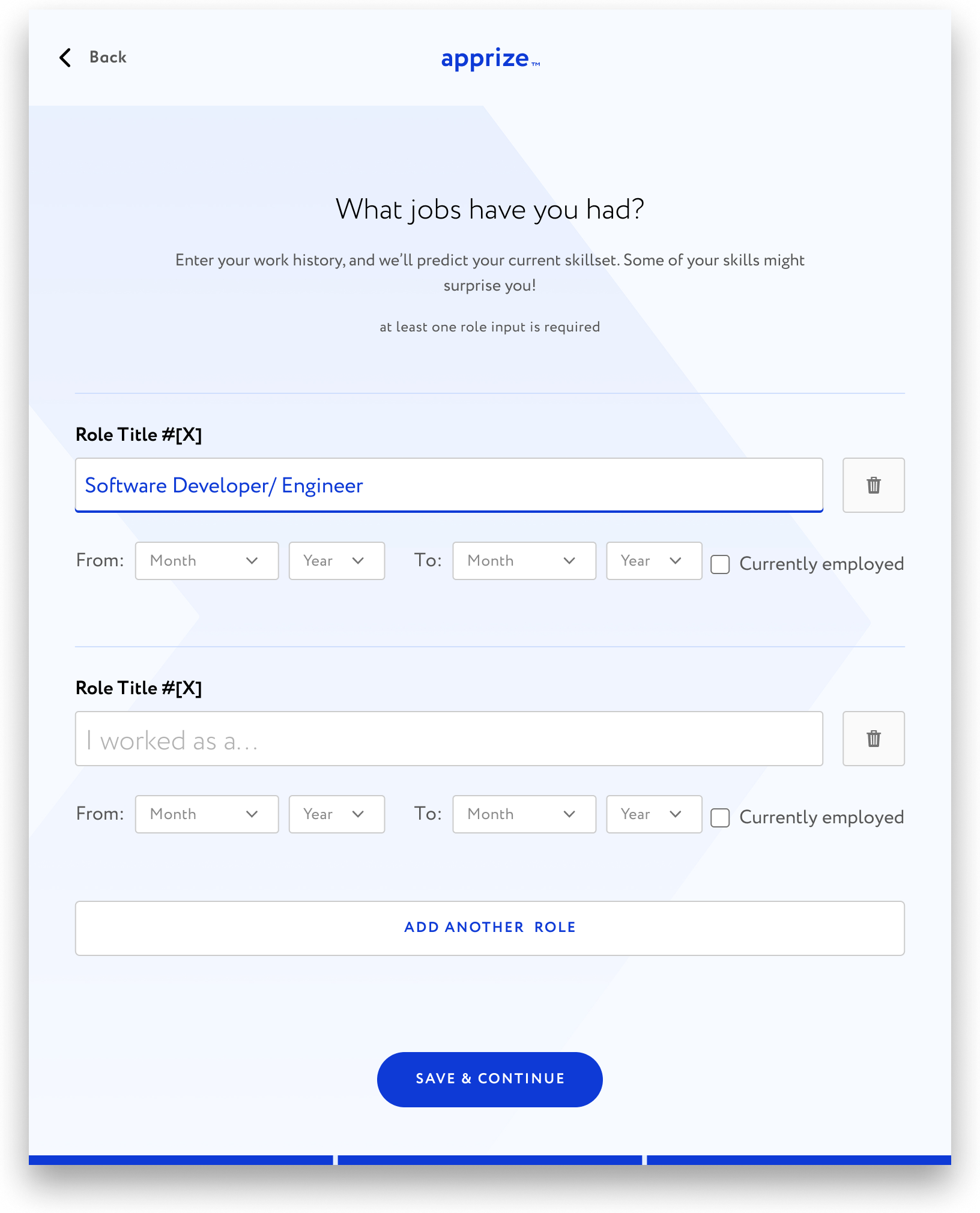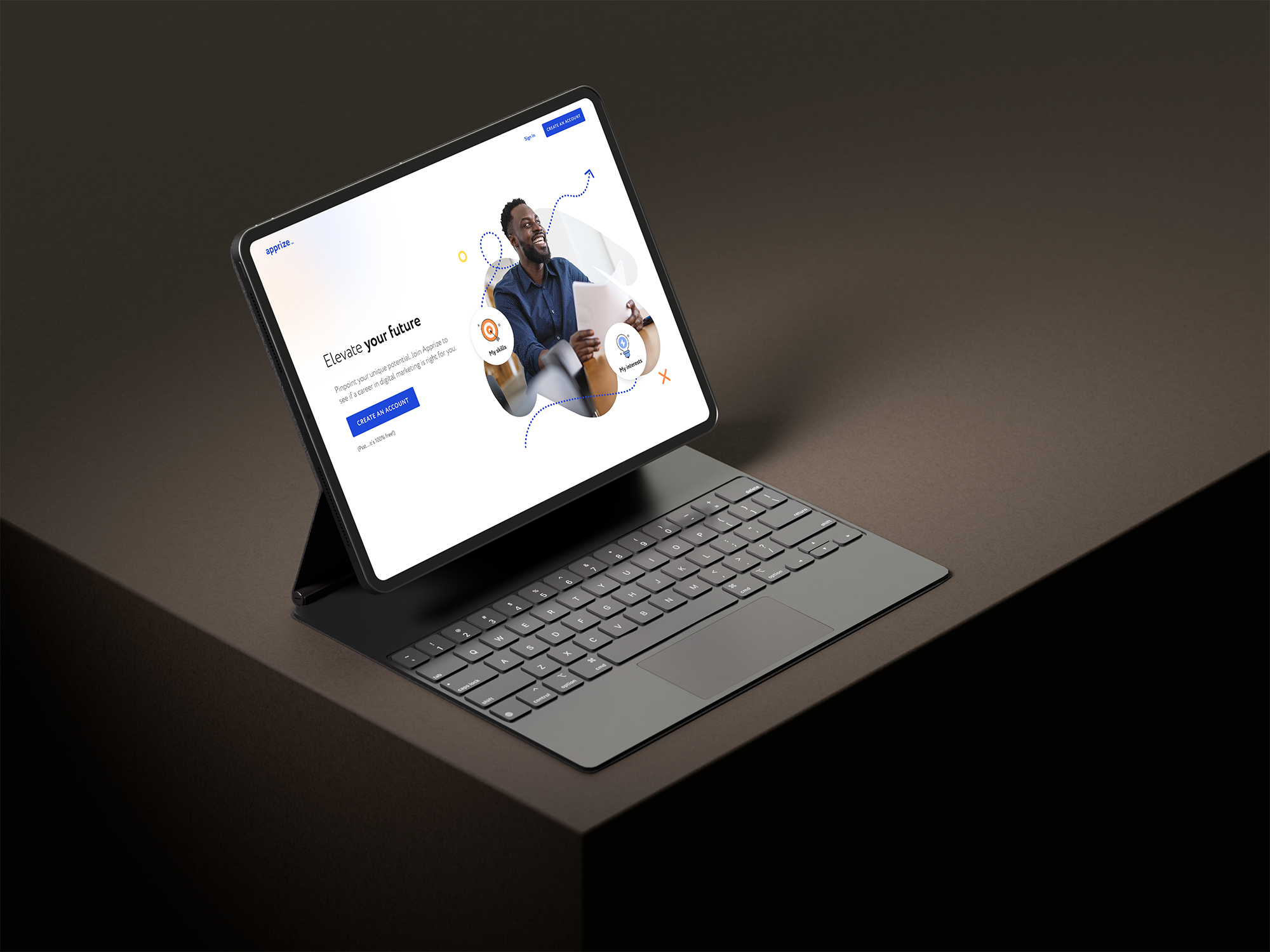
Overview
Designing a new career navigation platform
ETS approached Accenture to help them attract new customers by building an understanding of what an underserved community needs to break the glass ceiling. Apprize was created to gauge potential through a series of skills-based assessments. It serves as a career compass for job-seekers, ultimately placing them with employees. I was responsible for the design of the skills-builder feature, assessment modules and documentation of the design system.
Within months of the beta launch, the client successfully acquired a robust pipeline of diverse jobseekers. This enabled them to integrate training provider and employer starter solutions for job placement.
Role
UX Designer
Client
Education Testing Service (ETS)
Timeline
8 months
Platform
Desktop, Tablet, Mobile
The problem.
Traditional hiring methods today are ineffective. Rigid job descriptions and narrow hiring criteria exclude qualified candidates, leaving job seekers uncertain and employers struggling to identify the right talent.
So we asked, how might we shift the recruitment mindset of ‘where to find talent’ to 'how do you evaluate talent’.
Jobseeker Archetypes
-

The Navigator
Motivation: Seeking to get to the next stop as fast as possible
Opportunity: Fill skill gaps and address weaknesses that are keeping them from achieving their ideal career
-

The Homebody
Motivation: Seeking guidance on where to go next
Opportunity: Connect them to different industries who need their skill set and give them tools to highlight how their current skills are transferable
-
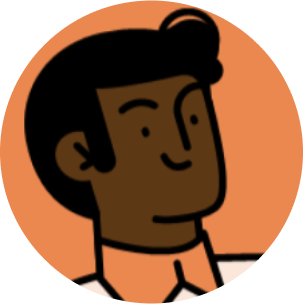
The Nomad
Motivation: Seeking a destination but unsure where to go
Opportunity: Find their ideal career and a clear pathway to realise that dream
-

The Vacationer
Motivation: Seeking to prove their readiness for the next role
Opportunity: Validate their skills to employers to prove they are already great candidates for their position
Business Goals
01
Boost ETS’s customer base by finding a diverse talent pool
Utilise ETS’s comprehensive offering of skill-based tests to access an untapped source of motivated, skilled job seekers
02
Drive revenue by pairing talent with training providers and job placement
Close the skill gap by placing Apprize’s jobseekers with training providers and ultimately with employers
03
Scale to market through Direct-To-Employer (DTE) channels
Offer skill assessments for employees with personalised upskilling and external job placement
IMMERSION APPROACH
We explored how to best capture jobseekers’ skills and connect them with careers and trainings in a way that would be helpful and actionable. We then probed to understand their mindsets and biggest blockers when it came to trainings
Testing initial skills inputting designs with jobseekers
Immersion Insights
Insights generated from qualitative and quantitative interviews with jobseekers in various stages of their job search. I spearheaded the research on the skills builder feature – outlining the test plans and prototypes, then sharing the findings with stakeholders and the team.
Lack of accuracy while inputting skills
Jobseekers felt the pre-populated skills displayed were comprehensive, but the accuracy and grouping could be improved. They were also hesitant to deselect skills as it felt like a loss and were concerned about being excluded from job opportunities
Design Consideration: Reinforce accuracy by improving overall skills grouping and distinction between transferrable and specialised skill sets. Help jobseekers understand that baseline skills would not affect their job opportunities, and an accurate picture would help them find the best career fit and trainings
Hesitancy in capturing additional skills
Jobseekers felt acknowledged when being asked to input non-career related skills but wanted to manage employer perceptions when it came to their personal activities
Design Consideration: Establish trust with the jobseeker that skills and information is not shared with employers
Contextualising skills around career goals
Jobseekers felt their skills and trainings were most valuable when presented in the context of their career goals
Design Consideration: Consider incentivising jobseekers to take more skills quizzes by showing previews of what their results could look like/ inform them about the career search
Uncertainty in training value and outcomes
While jobseekers understood why skills are important and linked to their career goals, they weren’t clear why trainings are important. Most jobseekers were stuck on high costs and time commitment of training, disregarding the quality and potential outcomes from it
Design Consideration: Provide an easy way for jobseekers to compare training quality and show how each training increases their Career Match score while keeping price transparency

KEY FEATURES
01
Skill Builder
During the immersion phase it was discovered that jobseekers struggle to confidently identify what they are good at. The skill inputting feature allows jobseekers to input past experiences easily and prompt them to identify the skills they have based on frequency and category data derived from Burning Glass Technologies API. Highlighted skills were key to generating the career profile.
02
Career Compass
This feature aims to give jobseekers access to valuable and relevant information to build an understanding of a career. A holistic description is given for each career along with pertinent information such as salary data, market demand, everyday tasks, top skills, and common career paths.
Depending on their career match score, job seekers are encouraged to either close skill gaps through training courses or into specific careers from our employer partners.
03
Skills Assessments
A suite of five skill-based assessments (collaborative problem solving, coachability, critical thinking, oral & written communication), developed to gauge a job seekers aptitude in the most in-demand work skills. This feature is built to facilitate ETS intellectual property for job seekers to properly validate competency in priority skills. Each assessment consists of numerous interaction types to challenge a user's abilities.
04
Know Yourself Quiz
A quiz that aims to gauge the behavioral tendencies of a user against the ‘big-five’ personality types, based on a sliding scale of archetypes.
05
Career Interest Profile
This feature is drawn directly from ETS to provide insight into what careers a user may enjoy based on task preferences. Based on how a user rates their affability for hundreds of tasks, this quiz can give suggestions for careers that are best suited towards those duties.
USABILITY TESTING
Improving the onboarding flow
This flow aims to uncover the essential information of a user’s career preference and goals. Initially a long quiz, we decided the platform could be more intentional in the quality of personal questions asked if the overall flow was broken up into sections. After the beta release we noticed there was significant drop-off in the second half of the flow so we dug deep into every aspect - adding frictions to the micro-interactions and iterating on illustrations, copywriting and privacy communications.
Following the next round of usability testing, there was a 32% increase in conversion rate. Jobseekers reported that Apprize’s onboarding was intuitive, cheerful, personalised, and differentiated due to comprehensive questions and upbeat tone.






